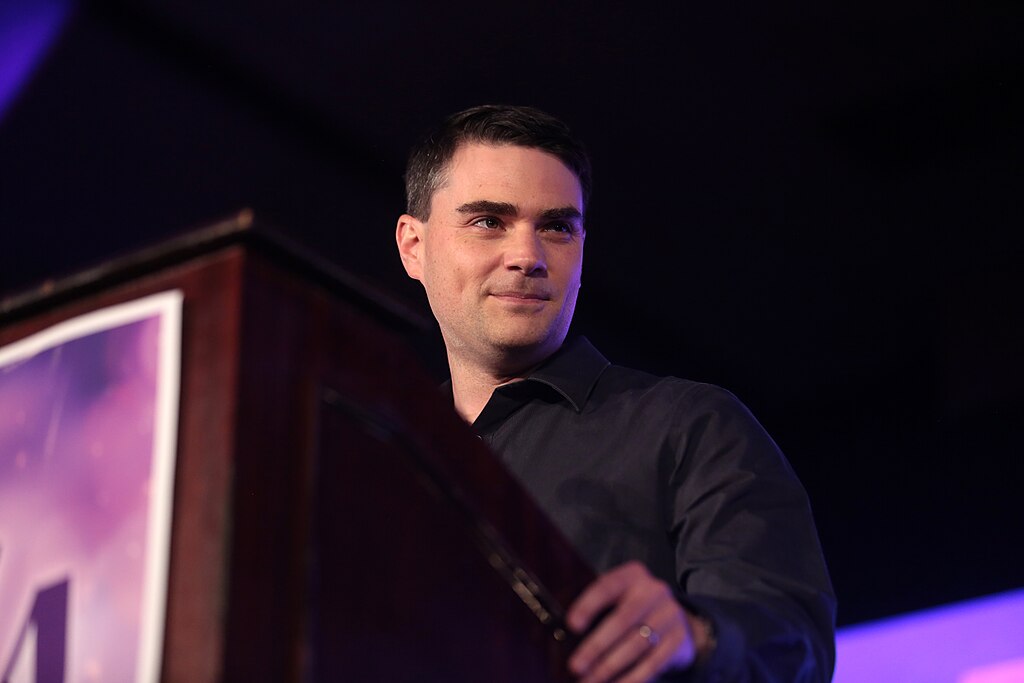Political commentator Ben Shapiro has presented a scenario that places the U.S. Supreme Court at the center of a potential election showdown, suggesting that unresolved disputes over ballot counts or election irregularities could escalate to the highest court. Shapiro, known for his conservative viewpoints and analytical approach, outlined the hypothetical situation in a recent episode of The Ben Shapiro Show, where he discussed the potential for legal challenges to influence the final election outcome. The commentary has stirred debate, with some viewing it as a plausible scenario and others cautioning against speculation.
According to Shapiro, if the election results are contested in critical swing states, the dispute could ultimately end up in the Supreme Court, where justices would be tasked with interpreting the legality of contested ballots or electoral procedures. “This isn’t unprecedented,” Shapiro explained, referencing the 2000 Bush v. Gore case, where the Supreme Court famously halted a Florida recount, effectively deciding the election in George W. Bush’s favor. “If we’re faced with a close race and legal challenges emerge over voting irregularities or ballot deadlines, it could lead us straight to the Supreme Court,” he added.
Shapiro’s scenario hinges on the assumption that close margins in pivotal states could lead to disputes over mail-in ballots, voter ID laws, or state-specific voting rules. These types of disputes, he argued, could create a situation where lower court rulings on such issues differ, prompting appeals that may escalate to the Supreme Court for a final decision. “We could very well see a scenario where conflicting rulings require the Supreme Court to step in,” Shapiro said. “And that decision could determine the next president of the United States.”
While some legal experts agree that a Supreme Court intervention is possible, others argue that such an outcome would be highly unlikely unless there are substantive legal questions involved. “The Court typically only takes on cases with national significance and real constitutional issues,” said Dr. Emily Parker, a professor of constitutional law. “It’s possible, but not something the Court would do lightly, given the impact on public trust.” Still, the hypothetical has left many wondering if the election could become a high-stakes legal battle if neither candidate concedes.
Shapiro’s comments have drawn criticism from those who argue that such scenarios fuel public anxiety and could further polarize an already divided electorate. “This is exactly the kind of speculation that could undermine confidence in our democratic process,” said political analyst Sarah Green. “If we frame the election as something only the Supreme Court can decide, we’re setting the stage for public distrust in the results.”
However, Shapiro defended his stance, arguing that discussing potential outcomes is essential to prepare voters for all possibilities. “We need to be ready for anything,” he said. “If we ignore the possibility, we’re not doing our jobs as informed citizens.”
As Election Day draws near, Shapiro’s scenario adds another layer to the national conversation about election integrity and the rule of law. Whether or not the Supreme Court will ultimately play a role in the 2024 election remains uncertain, but the commentary has sparked widespread debate over the judicial branch’s role in resolving electoral disputes.



 China Overturns Death Sentence of Canadian Robert Schellenberg, Signaling Thaw in Canada-China Relations
China Overturns Death Sentence of Canadian Robert Schellenberg, Signaling Thaw in Canada-China Relations  China Warns US Arms Sales to Taiwan Could Disrupt Trump’s Planned Visit
China Warns US Arms Sales to Taiwan Could Disrupt Trump’s Planned Visit  Trump Lifts 25% Tariff on Indian Goods in Strategic U.S.–India Trade and Energy Deal
Trump Lifts 25% Tariff on Indian Goods in Strategic U.S.–India Trade and Energy Deal  Trump Administration Appeals Court Order to Release Hudson Tunnel Project Funding
Trump Administration Appeals Court Order to Release Hudson Tunnel Project Funding  Ghislaine Maxwell to Invoke Fifth Amendment at House Oversight Committee Deposition
Ghislaine Maxwell to Invoke Fifth Amendment at House Oversight Committee Deposition  Sydney Braces for Pro-Palestine Protests During Israeli President Isaac Herzog’s Visit
Sydney Braces for Pro-Palestine Protests During Israeli President Isaac Herzog’s Visit  Trump Signs Executive Order Threatening 25% Tariffs on Countries Trading With Iran
Trump Signs Executive Order Threatening 25% Tariffs on Countries Trading With Iran  U.S. Lawmakers to Review Unredacted Jeffrey Epstein DOJ Files Starting Monday
U.S. Lawmakers to Review Unredacted Jeffrey Epstein DOJ Files Starting Monday  Trump Backs Nexstar–Tegna Merger Amid Shifting U.S. Media Landscape
Trump Backs Nexstar–Tegna Merger Amid Shifting U.S. Media Landscape  Taiwan Says Moving 40% of Semiconductor Production to the U.S. Is Impossible
Taiwan Says Moving 40% of Semiconductor Production to the U.S. Is Impossible  Anutin’s Bhumjaithai Party Wins Thai Election, Signals Shift Toward Political Stability
Anutin’s Bhumjaithai Party Wins Thai Election, Signals Shift Toward Political Stability  US Pushes Ukraine-Russia Peace Talks Before Summer Amid Escalating Attacks
US Pushes Ukraine-Russia Peace Talks Before Summer Amid Escalating Attacks  New York Legalizes Medical Aid in Dying for Terminally Ill Patients
New York Legalizes Medical Aid in Dying for Terminally Ill Patients  Trump’s Inflation Claims Clash With Voters’ Cost-of-Living Reality
Trump’s Inflation Claims Clash With Voters’ Cost-of-Living Reality  Japan’s Prime Minister Sanae Takaichi Secures Historic Election Win, Shaking Markets and Regional Politics
Japan’s Prime Minister Sanae Takaichi Secures Historic Election Win, Shaking Markets and Regional Politics  Trump Slams Super Bowl Halftime Show Featuring Bad Bunny
Trump Slams Super Bowl Halftime Show Featuring Bad Bunny  Netanyahu to Meet Trump in Washington as Iran Nuclear Talks Intensify
Netanyahu to Meet Trump in Washington as Iran Nuclear Talks Intensify 































